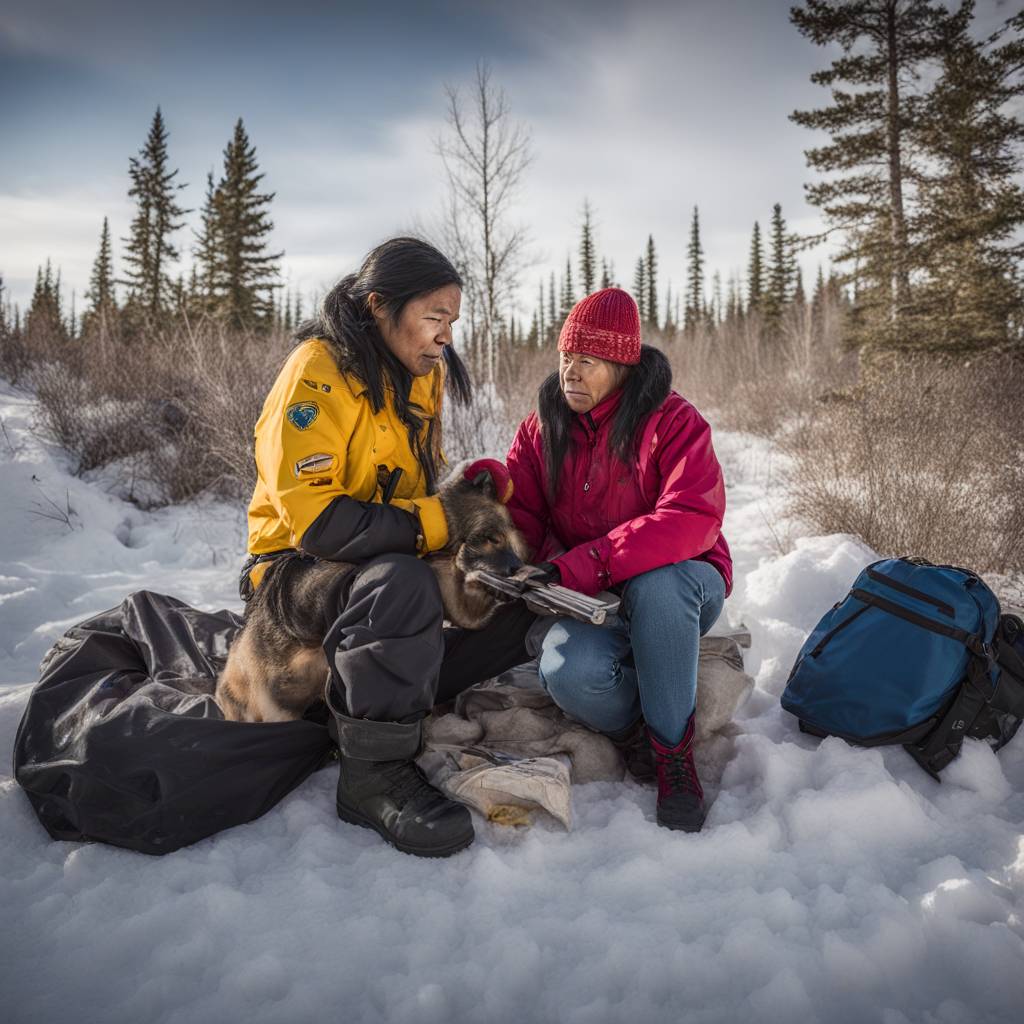A new report from the Yellowknife Women’s Society has found that homeless Indigenous women in the North do not feel well-protected by the RCMP. The report reveals that women have experienced abuse by RCMP officers or know Indigenous people who have. Women shared stories of being mistreated by police and feeling that their concerns were not taken seriously or believed as much as those of non-Indigenous people. The organization conducted sessions with women, and all participants expressed experiencing violence and discrimination by police.
The report outlines 24 recommendations to improve relationships between Indigenous women and the RCMP, as well as the overall safety of those the national force is meant to protect. The executive director of the Yellowknife Women’s Society, Renee Sanderson, spoke about the real-world consequences of the negative experiences with the RCMP. Many unhoused Indigenous women are reluctant to seek help from police due to fear of being ignored, mistreated, or worse. Sanderson and the report emphasize the need for Indigenous women to have a sense of safety and trust in the police force.
The report highlights the lack of resources for the Civilian Review and Complaints Commission, leading to the RCMP essentially policing itself. Cases of officer misconduct are often referred back to the RCMP for internal investigation. Despite numerous recommendations from various levels of government, the relationship between homeless Indigenous women in Yellowknife and the RCMP remains strained. The report also delves into the historical context of the RCMP’s presence in the region, tracing back to the North West Mounted Police and their role in imposing “law and order” as part of asserting Canadian sovereignty.
Indigenous women participating in the research expressed views of the police as enforcers of colonialism, echoing sentiments shared in the Truth and Reconciliation Commission. Many RCMP officers were noted to lack understanding of Indigenous Peoples, their cultures, and the historical context of the force’s interactions with Indigenous communities. The report underlines the need for better social services, including increased shelter spaces, mobile crisis response team capacity, and the establishment of residential mental wellness and addictions treatment facilities in the Northwest Territories. The broader recommendations call for improved training, community integration, and a comprehensive review of policing to address the issues of under-protection and over-policing of Indigenous women and other vulnerable groups.
The report points out that Indigenous Peoples constitute about 90% of Yellowknife’s homeless population despite making up only a quarter of the city’s overall population. More than 60% of the homeless Indigenous population had a parent attend a residential school, and over a third reported living in foster care or group homes during their youth. The Yellowknife Women’s Society emphasizes the need for systemic changes within the RCMP and the government of Canada to address the broken relationship between the RCMP and unhoused Indigenous women. The report calls for action on previous recommendations that have not been adequately implemented, emphasizing the urgent need for change to ensure the safety and well-being of vulnerable community members.













